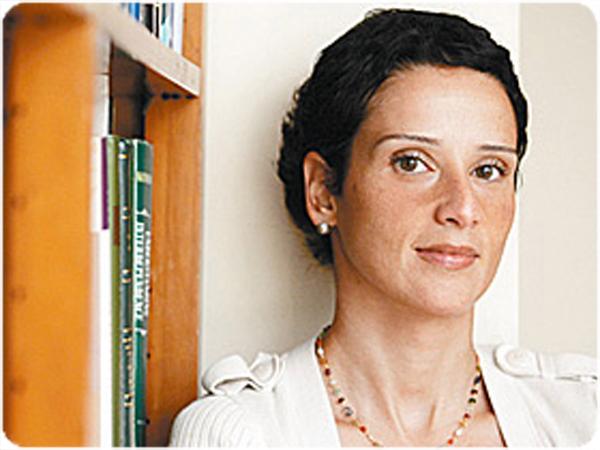RIO DE JANEIRO, BRAZIL – Economist Monica De Bolle has just released her book ‘Ruptura’ (‘Rupture’) – the first book in the series ‘A Pilha de Areia’ (‘the Sand Castle’), which analyzes the economic impact of the Covid-19 pandemic. In her book, de Bolle argues that a break with the established economic strategy standards, such as the public spending ceiling in Brazil, is required to address the challenges introduced by the novel coronavirus.

The economist makes it clear that the health crisis will have much longer-term impacts than governments and businesses seem to project today. She believes that the emergency aid, which was extended until December, will need to be extended once again, as it is clear that employment and income will not fully rebound by January 2021.
“The crisis will be very severe and prolonged. It is curious, because these notions have not been fully accepted. It is clear that this is a serious issue. According to the projections for the economy in 2021, people have not realized that the process (of rebound) will be very long and slow,” she said in an interview with Estadão newspaper.
Specifically in Brazil, is a more multidisciplinary approach to economic analysis lacking?
This is particularly striking in macroeconomics. Microeconomics has advanced further. It has merged with behavioral psychology to explain how people make choices. In a traditional model, decisions are perceived as rational, and we know this is not so. In the applied aspect, microeconomics has been able to incorporate even biomedical techniques to conduct randomized studies and test the efficiency of public policies.
And macroeconomics?
Macroeconomics is a different story. In many ways, it has stopped in time. Economy was born from moral philosophy, then it became political economy. It was only after the 1950s that the economy became more technocratic. And it became a matter of modeling, quantitative analysis. The macroeconomist must have a comprehensive look, know which institutions, politics and culture impact the economy.
And how does this become clear?
It became clearer after the 2008 crisis. And even more so now: because the pandemic is a much greater challenge than in 2008. I think there is a complete lag in macroeconomics. And the break brought on by the pandemic should be an opportunity to change that.
Did this limited perspective get in the way of predicting the crisis?
That was one of the drivers for my YouTube channel: why were economists unable to perceive the crisis? This made the limitation to a thought model very apparent. I have always had a background in the biomedical area, and I am studying again, and it became very clear that we were facing something new, for which the economy did not have good answers. I also realized that (the crisis) will be very severe and long lasting. It is curious, because these notions have not been fully accepted. It is clear that this is a serious issue. According to the projections for the economy in 2021, people have not realized that the process (of rebound) will be very long and slow.
Your book series works around the topic ‘A Pilha de Areia’ (The Sand Castle). How do you explain the concept?
When you build a sand castle, you are sure of one thing: at some point it will collapse into a pile of sand. This collapse can happen very quickly or take a long time. Thinking about pandemics, in terms of the pile of sand: we were absolutely sure that a pandemic would come.
We had already had a few – the last one was the H1N1 in 2009. That, in terms of the pile of sand, was a small and relatively fast collapse. In the great 1918 pandemic, it was exactly the opposite: everyone thought the influenza was a flu – scientists couldn’t understand why so many people were dying. The magnitude and intensity of that was a shock to the world. So, we must always be prepared – and this was the great mistake of the whole world, which remained anesthetized with the H1N1, since 2009.
Did that hinder Brazil’s economic response to the pandemic?
I think we were able to give some response, even if it was very insufficient. We are allowing many smaller companies to go bankrupt. This will have serious consequences for employment and market efficiency, because it will produce a huge concentration in certain sectors. This could be solved with public credit policy.
Should the BNDES (Brazilian Development Bank) be more active?
The BNDES is in an ideological prison. The TLP (long-term interest rate) is an excellent reference rate for the BNDES, but it is bad at a time of crisis because it has a variable part. Companies don’t know how much interest they will pay in future. This would be easily corrected if the BNDES also lent at Treasury rates. There is no need for a subsidy. What companies are asking for is a pre-fixed rate. The only explanation (for the current strategy) is: ‘we won’t do what Dilma did’. But it’s unconvincing.
And income distribution, should it be more generous and long?
Mostly, longer. The emergency aid was not as good as it could have been, but it helped, despite many execution and fraud issues. Now, this is the challenge: the aid has been reduced and extended until December. But we know that the pandemic is still out of control and people won’t find jobs until the end of the year. And the economic situation in January is going to be very poor. So, something more will need to be done.
Source: O Estado de S. Paulo

